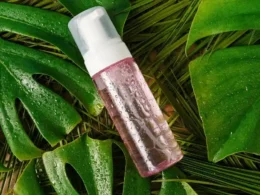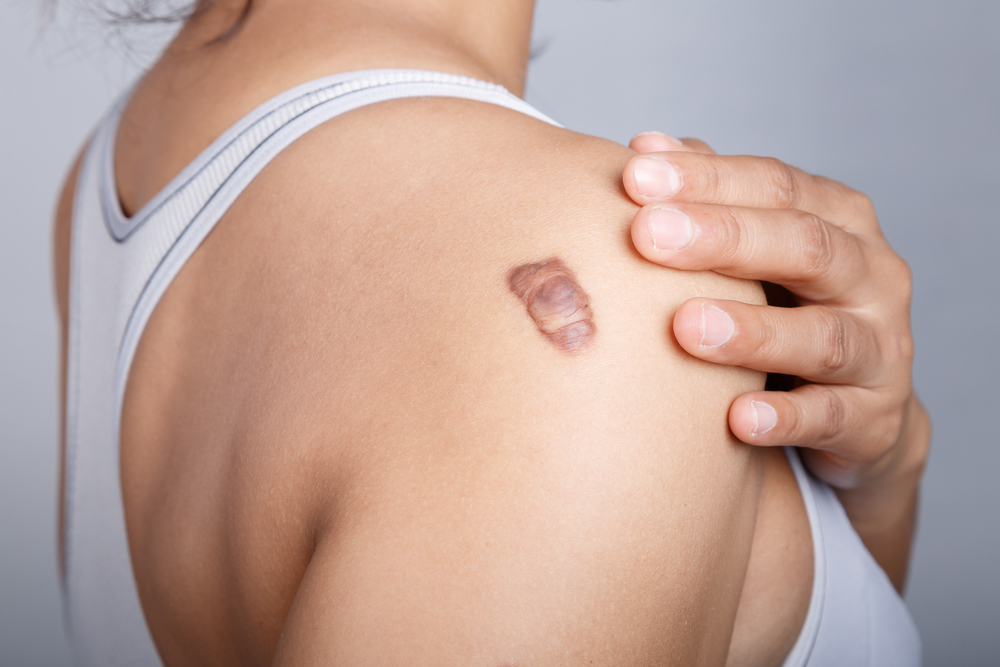- Despite the multitude of skincare products on the market, achieving soft, smooth skin is easier said than done.
- Diet, sun exposure, and poor lifestyle habits can cause skin to lose its natural glow.
- Choose products specifically formulated for your skin type to fix and prevent dull skin.
Many people spend a lot of time, money, and energy on skin care products — only to be left feeling frustrated and unhappy with their results.
Dermatological conditions such as acne, rosacea, and eczema can be challenging to treat successfully, while the sun, air pollution, and other environmental factors can damage skin if not correctly managed.
The good news is there are a number of steps you can take to improve your complexion and achieve glowing skin.
It won’t happen overnight, but making some key lifestyle changes and understanding which beauty products are right for your skin type can go a long way toward achieving and maintaining naturally beautiful skin.
Why is my skin so bad?
The phrase “bad skin” comes up repeatedly with skin care professionals and “good skin” proponents. Bad skin may include inflammatory skin conditions, excessively dry or oily skin, and skin that prematurely develops fine lines and age spots.
Given that skin damage can manifest in so many ways, it should come as little surprise to learn there are many possible causes.
According to Fort Lauderdale-based dermatologist Dr. Will Richardson, diet, sun exposure, and poor lifestyle habits can all have a big impact on the health and appearance of skin.
“You are what you eat. Poor diet contributes to a high glycemic index and resultant ‘glycation’ of collagen. Glycation is the addition of sugar molecules to the collagen in our skin, resulting in a yellow-brown skin discoloration,” Richardson explains.
Another common culprit: sun damage.
“Ultraviolet light penetration in the skin causes a cascade of reactions that damage the skin, including free radical production, resulting in the breakdown of collagen and elastin,” Richardson explains. “Finally, bad habits such as alcohol consumption, tobacco, nicotine, and a high stress lifestyle all contribute to skin’s aging.”
Research indicates certain environmental factors can also contribute to bad skin. A study published in the Journal of Dermatological Science found that exposure to air pollution can lead to signs of aging in the skin. Meanwhile, ozone — a gas found in Earth’s atmosphere — is believed to deplete antioxidants due to the way it reacts with the oils found on human skin and hair.
Chasing fads… and wasting money
In the United States alone, the skin care product market is expected to exceed $19.7 billion by 2024, according to forecasts from market research and consulting company Grand View Research.
People are clearly pouring a lot of money into their skin health, yet many are still dissatisfied with the state of their skin.
According to Dr. Tanya Kormeili, MD, a board-certified dermatologist in Santa Monica, CA, one of the biggest mistakes people make is falling for flavor of the month products that offer little real-world value.
“I think it is easy to fall for fads,” Kormeili explains. “There are so many skin care products and procedures that just drain the wallet and dry the skin. I highly recommend people consult expert dermatologists to help them sort out what is best for their skin type.”
Sunscreen and retinol: key components of your beauty regimen
Richardson says the most common mistake he sees people make revolves around the use of sunscreen. Although most people are aware of the protective properties of sunscreen, few use it as prescribed — which can lead to sun damage such as wrinkles, freckles discoloration, age spots, and more.
“Proper application of sunscreen is critical. It should be a minimum of SPF 30, broad-spectrum, and applied every two hours or each time after swimming.” To apply sunscreen adequately, Richardson says, “It takes a full one-ounce shot glass to cover sun-exposed skin for each application.”
A recent study published in the Journal of Drugs in Dermatology reports that the appearance of dull, photodamaged skin can be significantly improved in as a little as two weeks by following a simple, three-step beauty regimen. The study recommends prolonged, daily use of an exfoliating cleanser, 0.5% retinol emollient cream, and SPF 30 moisturizing sunscreen for mild-to-moderate facial photodamage.
Reviving dull skin: 6 pro tips
Everybody’s skin is unique; there is no single solution to achieve glowing, radiant skin. However, there are some basic tips you can follow that will help improve your skin’s texture and tone. Here’s what the dermatologists recommend.
- Know your skin type.
Whether you have oily, dry or sensitive skin, you need to look for a product formulated for your specific skin type.
Many dermatologists also recommend focusing on just one skin concern initially, rather than attempting to address several at once. This can help reduce irritation and unwanted side effects, as a number of skin care and anti-aging products can be quite harsh on the skin when used in conjunction with other creams and serums.
- Start with the basics.
Kormeili suggests starting with a basic skincare routine: a good sunscreen, cleanser, and moisturizer. These products protect skin from the sun, remove excess oil and dead skin cells, and hydrate.
From there, you have a variety of options to help make your skin glow. Ask your dermatologists which exfoliants, face masks, anti-aging serums, and hyperpigmentation creams are best suited to your unique needs.
“If you are interested in antiaging, you can add in prescription-strength items that are often far more effective than cosmetic counter products,” Kormeili recommends. “These are the retinoid products (vitamin A derivatives that have been proven to be beneficial for skin). For some patients, growth factors and brightening products are also needed to maintain healthy skin.”
- Lead a healthy lifestyle.
In addition to making smart choices in regard to skin care products, there are also a number of lifestyle changes you can make that may help you achieve radiant skin. Avoid prolonged sun exposure, take a proactive approach to hygiene, and be mindful of your diet.
“Mind your carbohydrate intake and choose foods that promote collagen formation and act as antioxidants, such as berries and pomegranate,” says Richardson. He also recommends lifestyle changes such as taking up yoga and meditation, and reducing alcohol intake.
- Hydrate your skin — from the inside out.
In addition to watching your diet, you should also pay attention to the amount of water you consume. According to research from the University of North Carolina, drinking more water can improve the thickness and density of skin, and improve skin hydration — particularly if you normally drink very little on a day-to-day basis.
However, despite what beauty magazines may claim, drinking more water does not prevent wrinkles or undo the signs of aging.
- Know your irritants and allergy triggers.
If you suffer from psoriasis or eczema, it is particularly important to be mindful of potential irritants in your living or working environment. Try to eliminate your known triggers. This may include certain ingredients found in detergents, air fresheners, fabric softeners, and a wide range of other common household products.
If irritation continues, be sure to speak to a board-certified dermatologist who will be able to help you pinpoint the possible cause and provide you with some options to manage future flare-ups and maintain smooth skin.
- Be patient.
Regardless of the products you choose, you will need to be patient and use them as directed. Many products require daily use for weeks or even months before results are seen. If you notice unwanted side effects or are unhappy with the results, discontinue use and book a follow-up appointment with your dermatologist.
Skin that glows: a reflection of your inner beauty
Beauty is more than skin deep — but that doesn’t mean you have to tolerate bad skin. Glowing, radiant skin is achievable for most people, although it does require patience and some trial and error to achieve the desired results.
Making positive changes to your daily habits plays a central role in creating a healthy foundation for your skin, while some well-chosen products can help bring out your natural beauty and stave off the effects of aging.
» For more information on beauty products that suit your skin type, get suggestions from our medical review team.









